Smart & Proven Mobile Home Park Insurance Guide
Having a mobile home park means having special risks—and without the proper protection, one accident could set you back thousands. That’s where mobile home park insurance takes precedence. It’s not a policy; it’s a peace of mind for your property and renters.
Whether you’re coping with liability claims, weather-related damage, or tenant conflicts, having the appropriate coverage is crucial. Mobile home park insurance provides customized protection to secure your investment. Let’s discuss how the proper policy can save you from headaches.
Table of Contents
What Is Mobile Home Park Insurance?

Mobile home park insurance is a specific form of commercial property coverage intended to safeguard mobile home park owners against loss exposures particular to this business. This policy goes beyond typical homeowners or property insurance to include not only the buildings but also liabilities associated with tenants and potential lawsuits.
It’s especially handy for property owners who rent out lots or units in a mobile home park. Insurance Information Institute (III) says, in their estimation, having the right commercial insurance based on the unique risks for your property is the key to long-term prosperity.
What Does Mobile Home Park Insurance Cover?
Mobile home park ownership and operation entail numerous responsibilities, risks, and pitfalls of liability. An appropriately formulated mobile home park insurance policy will protect your investment by offering a broad range of protection against the novel pitfalls of operating such a property. Below is a closer examination of what this type of policy usually covers:
General Liability Insurance
This is one of the most critical elements of mobile home park insurance. It offers coverage if a person suffers a bodily harm or property damage while on the grounds. From a tenant’s visitor slipping on a neglected walkway to an individual being hurt from falling branches or broken equipment, general liability pays for:
- Medical bills for the victim.
- Legal fees if the accident results in litigation.
- Settlements or judgments if you are held responsible.
If you don’t have this coverage, even a small accident may leave you with a huge financial toll.
Property Insurance Coverage
Property coverage ensures the physical buildings and features belonging to the park. This does not normally include the individual mobile homes (these are tenants’ responsibilities), but rather insures:
- Leasing office buildings.
- Storage facilities.
- Recreation centers, pools, or clubhouses.
- Perimeter fences and gates.
- Lighting systems and playground equipment.
- Signage and landscaped features.
This coverage assists in replacing or restoring lost property due to occurrences such as fire, theft, vandalism, extreme weather, or accidental collision.
Business Interruption / Loss of Income
In case a fire, flood, storm, or any other catastrophe makes part or all of your park uninhabitable, you may suffer significant revenue loss due to lower tenant occupancy or temporary shutdown. Loss of income coverage, otherwise referred to as business interruption insurance, assists in covering:
- Lost rent during repairs.
- Recurring expenses such as payroll, taxes, or mortgage obligations.
- Accommodation or temporary relocation expenses of tenants (where applicable).
This protection can prove invaluable in having your business operating smoothly, despite unforeseen hiccups.
Legal Defense and Liability Protection
Lawsuits are a reality in property management. Whether from personal injury claims, disputes with tenants, or regulatory issues, legal costs can quickly escalate. Mobile home park insurance policies often include coverage for legal defense, which helps pay for:
- Attorney fees.
- Court expenses.
- Settlement negotiations.
- Potential judgments awarded to the claimant.
This protection ensures you’re not financially overwhelmed by legal action and can focus on resolving the issue effectively.
Equipment Breakdown and Utility Coverage
Contemporary mobile home parks rely on a range of mechanical and electrical systems to sustain livability and functionality. Water heaters and sewer lines, electric transformers and HVAC systems, a breakdown in any of these, can bring operations to a standstill. This section of the policy addresses:
- Sudden electrical or mechanical breakdowns.
- Repair or replacement equipment cost.
- Disruption of services loss (where applicable).
It’s particularly crucial for parks with common utility infrastructure, where both tenants and the park owner are ensured protection from service disruptions.
Tailored Coverage from Specialized Providers
Generic insurance policies tend to be inadequate in meeting the particular requirements of mobile home park owners. That’s why specialty providers like XINSURANCE provide tailor-made coverage plans. These are designed based on your park’s distinct characteristics, including:
- Geographic location and weather hazards (e.g., flood areas, wildfire zones).
- Number of rental units and permanent buildings.
- On-site amenities such as pools, dog parks, or playgrounds.
- Security measures present (cameras, guards, gates).
- Lease agreements and tenant responsibilities.
These providers perform a thorough risk assessment and create a plan that weighs full protection against affordability, so you’re only paying for what you really need.
Common Risks Faced by Mobile Home Parks
Running a mobile home park comes with a distinct set of challenges beyond those experienced by standard residential property owners. With several tenants, common infrastructure, and exposure to natural and human-made hazards, mobile home parks need unique protection. Here are some of the most frequent high-risk situations that explain why mobile home park insurance is essential for park owners.
Storm and Weather-Related Damage
Mobile home parks are especially susceptible to severe weather conditions. Tornadoes, hailstorms, hurricanes, and heavy rainstorms can result in extensive damage to:
- Park-owned buildings such as offices, clubhouses, or fences.
- Park roads, signage, and landscaping.
- Electrical and plumbing infrastructures that provide services to multiple tenants.
In flood- or wildfire-prone regions, the hazards are even greater. A single storm can cause operations to shut down for weeks and result in huge repair bills. Park owners pay these out of their own pockets if they don’t have proper insurance protection.
Tenant Accidents and Suits
Since mobile home parks feature public walkways, community facilities, and shared services, there is always the possibility of tenant or guest injury. Common culprits include:
- Slip and fall incidents on poorly serviced paths.
- Accidents at facilities such as pools or playgrounds.
- Substandard lighting causing evening hazards.
All these accidents may lead to personal injury claims, which are costly. Liability insurance provides financial protection against legal defense expenses and settlements, saving the park owner money out-of-pocket.
Damage to Property by Fire, Vandalism, or Theft
Blazes have a way of spreading quickly within mobile home parks because units are close together and utility malfunctions are possible. Vandalism and theft, apart from fire, are also ongoing issues, particularly in poorly secured or inadequately lit parts of the park.
Possible scenarios are:
- Intentional property damage by trespassers or upset tenants.
- Theft of maintenance equipment or supplies belonging to the park.
- Fires that start due to electrical failures or tenant negligence.
Without special property coverage, repairing or replacing buildings and restoring from fire damage may deplete your resources.
Infrastructure Collapse and Equipment Failure
Mobile home parks tend to have old infrastructure. Failures such as ruptured pipes, septic system overflows, or electrical system malfunctions can result in severe disruption for several tenants simultaneously. These failures can result in:
- Temporary park shutdowns.
- Health and safety issues.
- Costly emergency repairs.
Even a short-term utility outage can significantly impact tenant satisfaction and your park’s reputation. Insurance with equipment breakdown and infrastructure protection ensures you’re covered for sudden and accidental failures.
Why These Risks Make Insurance Essential
These shared risks are not typically included in a standard homeowner’s or landlord insurance policy. Mobile home parks are sophisticated businesses that need a specialized insurance policy tailored to the specific nature of shared property ownership and multiple-tenant settings.
Companies such as XINSURANCE provide tailored coverage that specifically addresses these issues, allowing you to operate with confidence and long-term security.
Cost Factors for Mobile Home Park Insurance

The price of mobile home park insurance can be quite different based on a broad array of risk and operational considerations. Unlike standard homeowner insurance, mobile home park policies need to account for the complexity of having a multi-unit property, such as liability exposures, infrastructure concerns, and tenant safety. Knowing what drives costs can assist park owners in better budgeting and making informed coverage choices.
Following are the major factors influencing the total premium of a policy:
Geographic Position and Environmental Hazard
Where you live has a large influence on how much you pay for insurance. If your mobile home park is in an area prone to natural disasters or extreme weather, such as tornadoes, hurricanes, or flooding, you’ll pay more. Premiums are raised by:
- Areas most susceptible to tornadoes (e.g., Oklahoma or Kansas).
- Coastal properties at risk of hurricanes or flooding.
- Wildfire hazard areas, like portions of California.
- High-crime areas where theft and vandalism are prevalent.
Insurers assess the likelihood of claims related to local environmental and social factors and then adjust premiums accordingly.
Park size and number of units
The bigger the park, the more buildings, utility infrastructure, and tenants you need to insure—and the more it will cost. Insurance costs tend to rise with:
- Number of mobile home pads or rental units.
- Amenities located on-site like clubhouses, pools, or recreation centers.
- Number of shared infrastructure (e.g., roads, lighting, septic systems).
A park with 20 units and no amenities will pay much less in insurance than a 100-unit park with playgrounds, laundry rooms, and community buildings.
Claims History and Risk Profile
Insurers evaluate your claims record to establish your risk profile. If you’ve made several claims previously, particularly for significant losses such as fire or injury claims, you might be classified as high-risk, which leads to:
- Increased annual premiums.
- Tighter policy conditions.
- Possible denial of cover for individual claims.
Keeping a good claims record and investing in risk reduction (such as safety signs or security lighting) can lower your long-term insurance bills.
Coverage Types and Coverage Limits Chosen
The greater the coverage you have, the higher your premiums will be. But selecting proper coverage is necessary to safeguard your investment. Price determinants are:
- Coverage limits (higher coverage limits result in higher premiums).
- Deductible levels (lower deductibles typically increase the premium).
- Optional riders such as flood insurance, equipment breakdown, or cyber liability.
- Additional coverage for loss of earnings or legal defense.
Tailor-made policies from underwriters such as The Hartford or XINSURANCE enable you to customize coverage to precisely suit your park’s requirements, providing flexibility to meet cost and coverage needs.
Age and Condition of Infrastructure
Parks with older facilities, utility infrastructure, or neglected property can expect to pay higher premiums because of the greater potential for system breakdowns or liability claims. Improved or well-maintained parks are less likely to break down and have accidents, so they are more desirable to insurers and reduce the premium cost.
Tips for Obtaining the Best Rate
Compare Quotes: Don’t accept the initial quote. Utilize specialized insurance brokers or websites to compare quotes from several providers.
- Bundle Policies: If you require commercial auto or landlord insurance as well, bundling can offer discounts.
- Perform Annual Reviews: Your risk profile and insurance needs can change over time, so review your policy annually to ensure it still suits your circumstances.
- Invest in Risk Mitigation: The cost of installing fire extinguishers, security cameras, fencing, and proper lighting can be mitigated to pay less for insurance.
With a knowledge of what drives costs, mobile home park owners can help insurers craft bespoke policies that deliver robust protection at an affordable cost.
Tips to Choose the Right Mobile Home Park Insurance Policy
Selecting the proper mobile home park insurance policy is an important choice that can safeguard your property, your renters, and your financial future. With the diversity of coverage possibilities out there, choosing the most suitable plan means careful comparison, research, and a solid understanding of your park’s specific needs.
The following are some tips supported by experts to guide you in making the correct choice:
Work With Niche Insurance Providers
Not every insurer is familiar with the distinctive risks and operational dynamics of mobile home parks. It’s important to work with insurers who are knowledgeable about mobile home park insurance. Niche players have a strong understanding of the industry and are in a position to:
- Recognize the unique liabilities your park is likely to encounter.
- Provide specialized risk assessment.
- Offer customized solutions for coverage that mainstream insurers may not have considered.
Reliable carriers such as XINSURANCE and The Hartford have a reputation for providing specialized mobile home park coverage that is modeled after actual-life risk situations.
Obtain Customizable and Scalable Plans
With your park’s expansion—adding more units, improving infrastructure, or adding amenities—your insurance requirements will also change. This is why selecting a versatile mobile home park insurance policy that is adaptable to:
- Simple policy changes without charge.
- Add-ons for additional coverage such as cyber liability or flood protection.
- The flexibility to increase coverage limits as your business grows.
Don’t settle for one-size-fits-all policies. Find insurers that offer modular coverage, so you pay only for what you require but have the option to add more later.
Check Customer Reviews and Claims Handling
Even a beautiful policy can be a nightmare if the insurer is not good at handling claims or customer service. Before enrolling:
- Read authenticated reviews on sites such as Trustpilot, Google Reviews, or Better Business Bureau (BBB).
- Seek out persistent good feedback regarding the claims experience, not only the purchasing process.
- Ask the insurer how long, on average, it takes to settle a claim.
Trustworthy mobile home park insurance companies must be transparent, responsive, and actively supportive during the policy term—not only when selling you the policy.
4. Compare at Least Three Quotes
Don’t leap at the first policy you see. Comparing quotes from at least three different insurance companies makes you:
- See market pricing.
- Recognize concealed fees or coverage gaps.
- Negotiate on better terms confidently.
Be sure to compare at least three reputable insurers, such as Next Insurance, XINSURANCE, and The Hartford. When reviewing quotes, don’t just look at the price—analyze what’s included, the exclusions, and the deductible amounts. A slightly more expensive policy might offer significantly better protection and long-term value.
5. Ask About Risk Mitigation Discounts
Many insurers offer premium discounts if you’ve taken steps to minimize risks. Ask potential providers if they reward:
- Installing perimeter lighting and surveillance systems.
- Adding sprinkler systems, fire hydrants, or smoke detectors.
- Regular maintenance inspections.
- Supplying tenants with safety guidelines.
These preventive steps not only reduce your mobile home park insurance premium but also improve tenant safety and satisfaction.
Final Thought
Taking the time to choose the appropriate mobile home park insurance policy can save you thousands of dollars in potential losses and provide peace of mind. By working with expert providers, being flexible, and comparing quotes closely, you’ll be well-equipped to safeguard your business now and in the future.
Benefits of Having the Right Coverage
Choosing the appropriate mobile home park insurance isn’t merely about meeting a legal obligation—it’s an intelligent, tactical decision that guards your property, income, and reputation. Below are some of the major advantages that accompany having the correct coverage in place:
- Legal Protection from Liability Claims: Accidents can happen at any time—whether it’s a slip-on icy pavement or an injury at a shared amenity. With the right insurance, you’re protected from costly legal battles, attorney fees, and settlement costs that could otherwise drain your finances.
- Peace of Mind During Disasters: Severe weather, fires, and acts of vandalism can severely damage your park. Knowing that you are covered means you will be able to respond quickly and confidently in a crisis, dealing with recovery, not worry about financial loss.
- Financial Stability Through Income Replacement: If your park is temporarily unlivable because of a covered event, the appropriate policy covers lost rental income. This keeps your business afloat and your costs paid even in off periods.
- Better Tenant Relationships: Proper mobile home park insurance demonstrates to your tenants that you care about safety and responsibility. It establishes trust, boosts tenant satisfaction, and can even translate into longer occupancy.
- Long-Term Cost Savings: While insurance is a consistent expense, it’s a minor investment against the financial ruin a single calamity or lawsuit may inflict. Proper coverage can mean the difference between a mere setback and a full-blown economic crisis.
Final Verdict: Is Mobile Home Park Insurance Worth It?
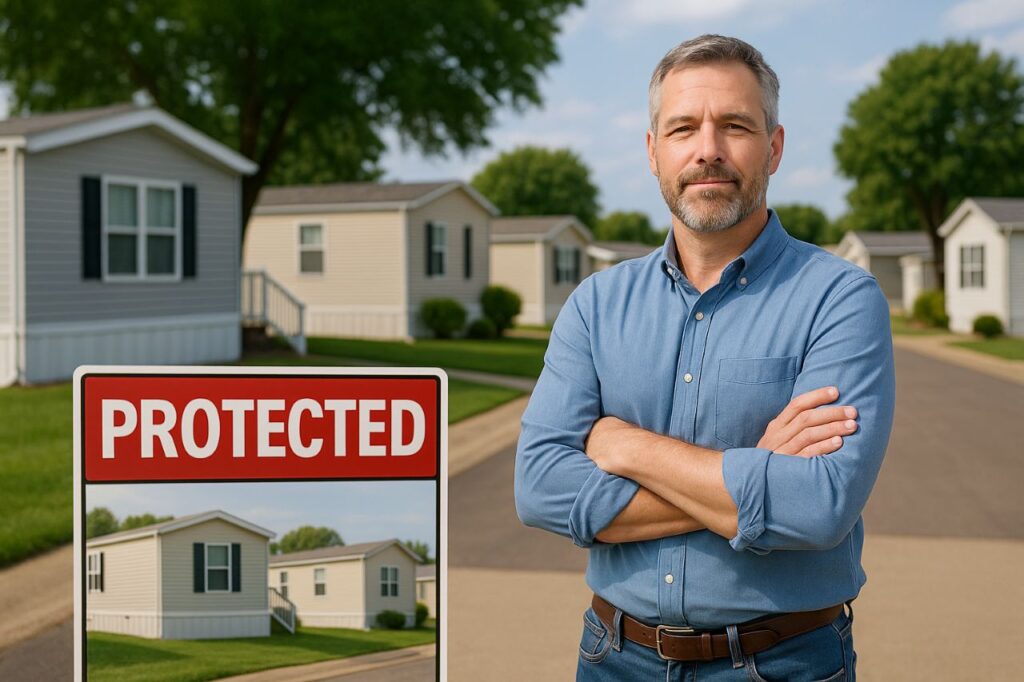
If you are the owner or manager of a mobile home park, going without insurance is a gambler’s move. From storms to lawsuits filed by tenants, the stakes are too great to take a chance on. Mobile home park insurance is an economic solution for ensuring your business and long-term financial security.
Thanks to carriers like XINSURANCE with their flexible, custom solutions, you have no reason to go unguarded.
Read: Midvale Home Insurance: A Powerful Choice
Frequently Asked Questions (FAQs)
Is mobile home park insurance legally required?
While not always legally required, it’s strongly recommended to protect against liability and loss.
Can I bundle mobile home park insurance with other business coverage?
Yes, many insurers offer bundle discounts with general business or property insurance.
How much does mobile home park insurance cost?
Costs vary based on park size, location, and coverage but generally range from $1,000 to $5,000 annually.
Where can I compare multiple providers?
You can use platforms like Insureon or CoverWallet for side-by-side comparisons.
What’s the difference between mobile home insurance and mobile home park insurance?
Mobile home insurance covers individual homes, while mobile home park insurance protects park owners against liabilities, property damage, and legal claims related to the entire park.
Can I customize my mobile home park insurance policy?
Yes, many providers allow you to tailor your policy based on your park’s size, location, number of units, and specific risks like flood or equipment breakdown.
Does mobile home park insurance cover tenant-owned homes?
Generally, no. Tenants are responsible for insuring their own homes. However, your mobile home park insurance can cover common areas, infrastructure, and your own liability as the park owner.



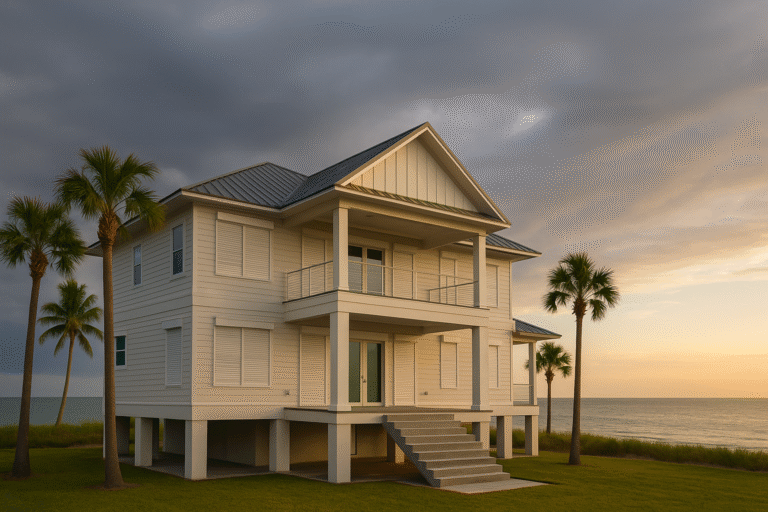
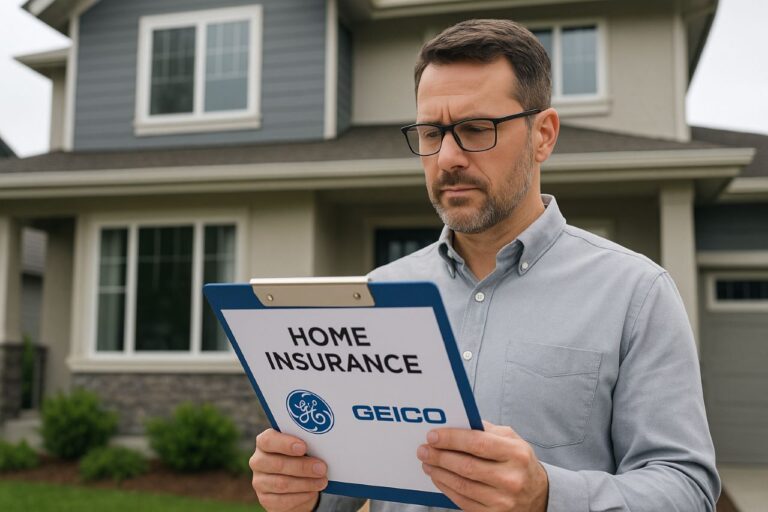
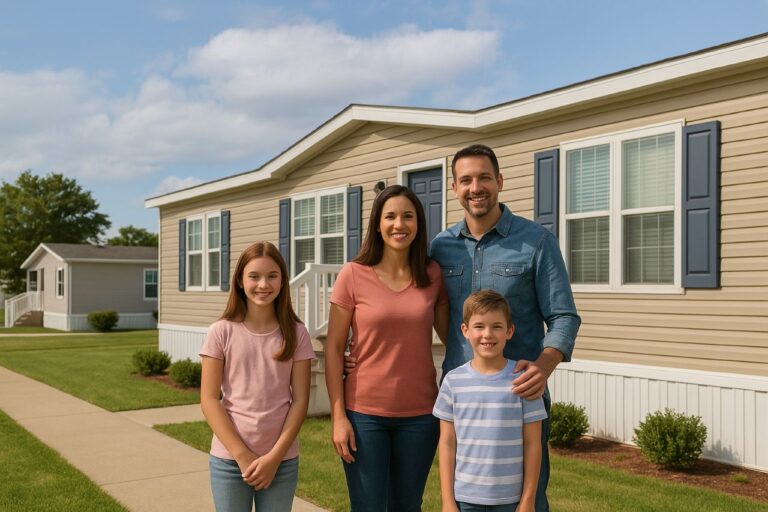
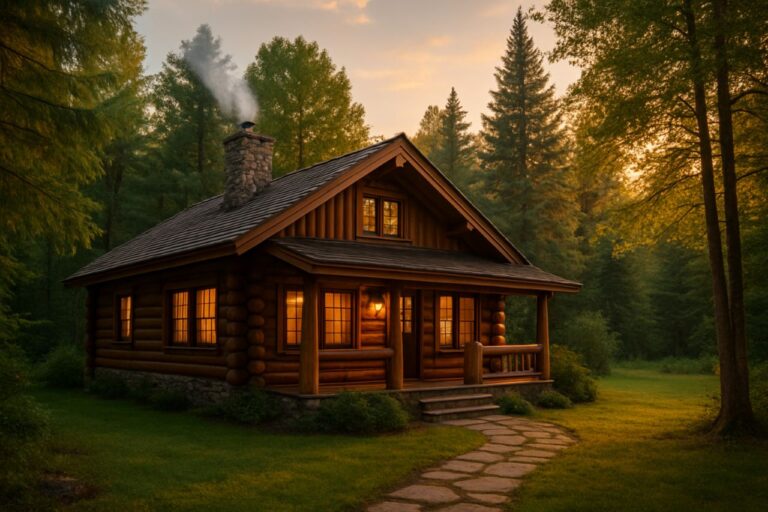
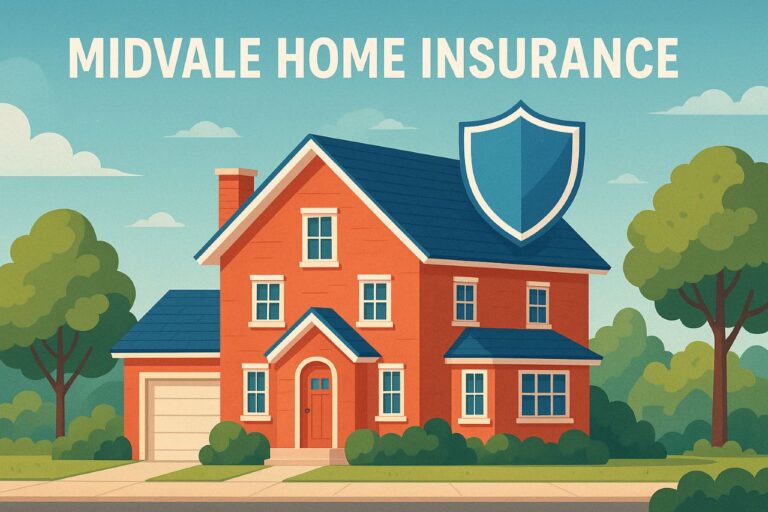
One Comment